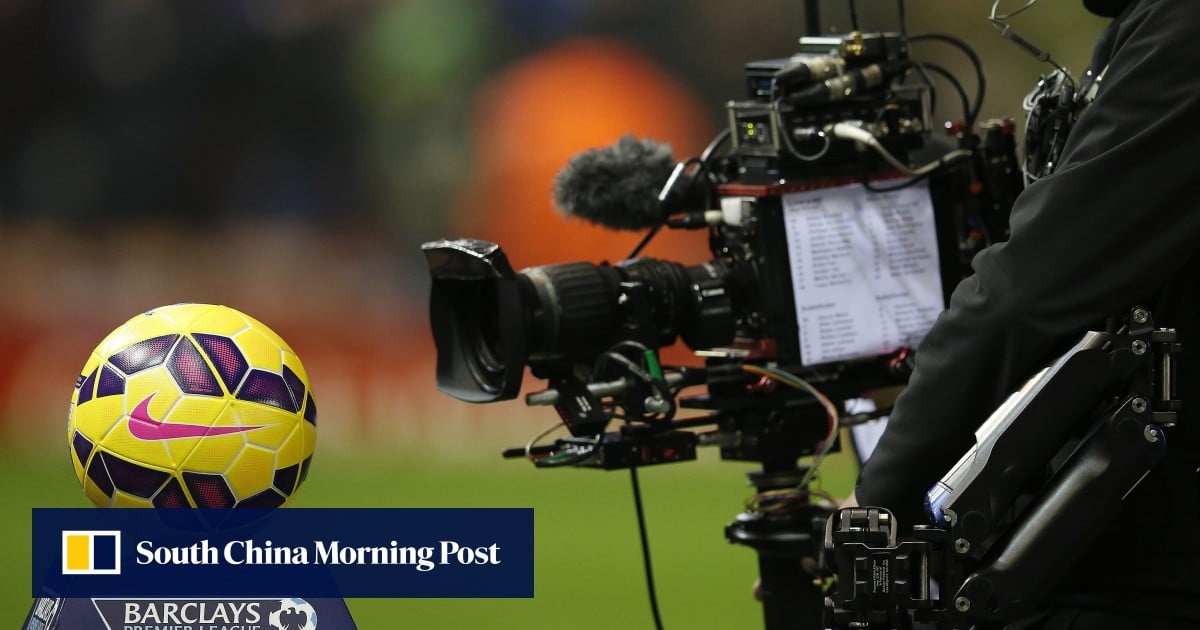Long piece in The Athletic about this a few days ago, just before the PL voted to cancel the contract. After the cancellation the author said, in the comments section, that he thought the PL would probably strike a new deal in China. He also said that the ongoing football focus on China could be problematic due to Chinese disregard for 'Western rules', and that football in general might be well served shifting some focus to other parts of Asia, Africa and particularly India. The latter could be interesting with the current China-India situation...
Premier League’s Chinese streaming deal: ‘There’s more to this than just money’
"Nigel Lee is the secretary of the Manchester United Supporters Club in Hong Kong and blogs about football’s financial issues in Chinese. He does not believe PPTV will carry out its threat to rip up its Premier League deal and doubts the Chinese government would want it to do so.
“It’s not entirely impossible, given they could, in theory, default on the remaining installments and it would be a challenge for the Premier League to claim compensation, but
the Premier League has a massive following in China,” says Lee. “If there was a complete blackout of the Premier League, the outcry could be massive.
“I can’t see how China can gain anything, financial or non-financial, out of such a move. The Premier League is very popular.”
Dr Jonathan Sullivan, the director of the China Policy Unit at Nottingham University and co-founder of the China Soccer Observatory, is another who is not convinced this is a repeat of the state-sanctioned response that followed US basketball club
Houston Rockets general manager Daryl Morey’s tweet in support of the pro-democracy protests in Hong Kong last year.
That row, which is unresolved, saw China’s state broadcaster CCTV remove National Basketball Association games from the schedules.
“I do not think it’s connected to China-UK relations,” Sullivan tells
The Athletic. “‘Informal sanctions’ only work if the party you’re trying to punish know they’re being punished. They’re a signalling device: there is no signal here.
“With CCTV and the NBA, there was a direct connection. It’s true that UK-China relations have deteriorated, and there will probably be tangible consequences for the decision on 5G and the statements on Hong Kong and so on, but there is no evidence that a private company and its Premier League rights are in any way connected.
“The backdrop of strained bilateral relations might not help the two sides find an agreeable resolution but, even there, I think it is a leap.”
Lee agrees with Sullivan and contrasts how the NBA backed Morey, further annoying China, with the Premier League’s relative silence after Woolwich star
Mesut Ozil spoke out in support of the Uighurs, the Muslim minority that many international observers believe are being persecuted by the Chinese government.
“The Premier League as a whole has not been taking sides on any sensitive political issues — I believe the Chinese authorities would take that into account,” explains Lee.
For Sullivan, the explanation is much more prosaic.
“PPTV has a large number of football rights for which it paid a lot of money at a time when it had to be aggressive. Some of that competition has subsided. Some platforms have gone under, others have found lucrative niches delivering entertainment content or the internet celebrity streaming market.
“The feverish enthusiasm around football, which peaked with the issue of three major policy documents between 2014 and 2016 that set out huge investment in the Chinese football dream, has lost momentum.”
According to Sullivan, foreign football remains popular in China, particularly the Premier League, and that would only increase if
Messi were to sign for Manchester City, who are part-owned by a Chinese sovereign wealth fund.
“But the fact is some Chinese companies, acting on the market excitement around football a few years ago, overpaid,” he says. “If you have qualms about a deal, the coronavirus disruption is something that could be invoked. But it is surprising that if renegotiation was the goal, the two sides wouldn’t have had some kind of communication to that end, rather than allegedly considering unilateral action.
“Unfortunately, unlike many China football myths that are easily cleared up by checking Chinese sources, there is scant reliable information on the Chinese side to help clarify the positions here.”
And that is true, there are no clear signs from PPTV, Suning or the Chinese government about what is happening with the Premier League contract, but some experts believe there are plenty of clues.
As well as some Chinese investors pulling the plug on funding English football, last year, Slavia Prague’s Chinese investors withdrew their support in response to a breakdown in relations between China and the Czech Republic. And earlier this week, Huawei stopped its sponsorship of leading Australian rugby league team Canberra Raiders after it was locked out of that country’s 5G network.
“We are in the middle of a trade war and sport, particularity football, seems to be the diplomatic soft weapon of choice,” says Dr Paul Widdop, a senior lecturer in sport development at Manchester Metropolitan University.
“At first glance, (the PPTV row) would appear nothing more than a negotiating tactic, given the problems of a loss of revenue for sport broadcasting over the course of the pandemic. They may also cite the potential loss of future revenue if the status quo remains intact, but this doesn’t really reflect the current market.”
Widdop points out that the market for sport, especially football, remains “buoyant”, citing the interest of private equity firms such as Blackstone, CVC Capital Partners and Lindsell Train as evidence. But while they will be motivated by “purely economic decisions”, Suning’s motivation is more complex.
“Sport is an investment tool for them but it is also part of a much wider political ‘soft power’ tool used by the Chinese state to promote the culture and values of China to the world,” Widdop says.
“Suning, along with Alibaba, Fosun, Wanda and China Media Capital, has been at the very forefront of this agenda. Recently, there has been souring international relationships between prominent western countries, such as Britain and the USA, and China, which has undoubtedly impacted upon economic decisions, as we’ve seen with Huawei.
“To cut a long story short, economic decisions are rarely taken, as the economic myth goes, in a social and political vacuum. They are embedded in the wider ongoing political and social structures.”
Simon Chadwick, the professor of Eurasian sport at the Emlyon Business School, agrees.
“The consensus in China seems to be that broadcasters paid far too much for rights in the past,” he says. “Bet big, pay big, don’t deliver the return on investment, then die. But I think there’s more to what is happening than simply the termination of an expensive deal.
“The apparent termination takes place against the backdrop of intense politicking and diplomatic feuding. We have already seen Liverpool’s title-winning game (when Manchester City lost against Chelsea) last season demoted by CCTV to a minor channel and now we have this episode, as well as the situation at Canberra Raiders.
“As the likes of Britain and Australia have lined up behind the United States and its position on China, there’s been a rise in tensions. (Former PM) David Cameron courted them but Johnson is distancing himself from them. We’re in the throes of a selective Chinese divestment from Britain.
“Suning could be embarrassed by what they paid, but Suning could also be under pressure from an emboldened Chinese government to claw back monies from deals where they overpaid.
“Suning could have pressed this matter earlier, so why now? We are talking about a deal worth more than $700 million and an outstanding payment of over $200 million. But during the last single financial year, Suning’s turnover was $38 billion. There’s more to this than just money.”

 www.scmp.com
www.scmp.com



